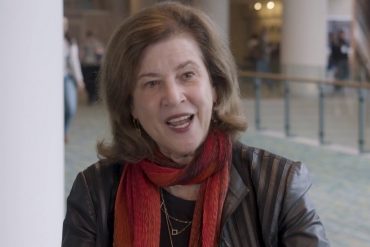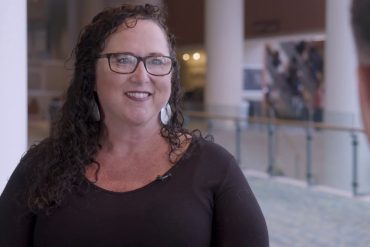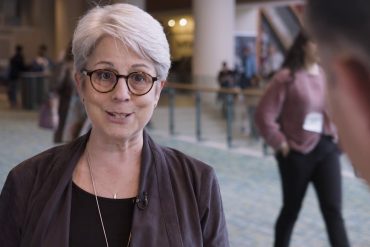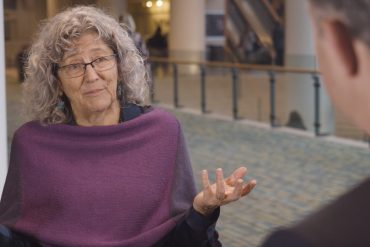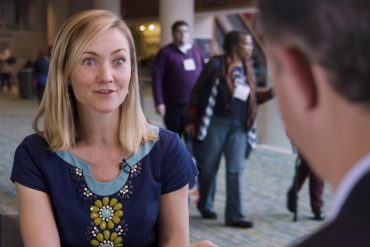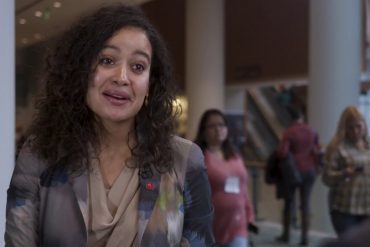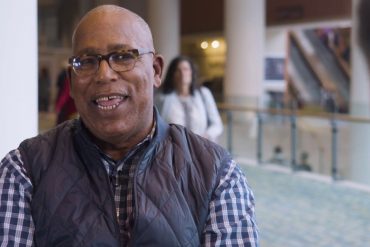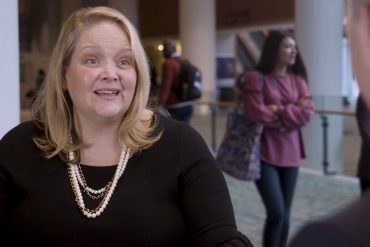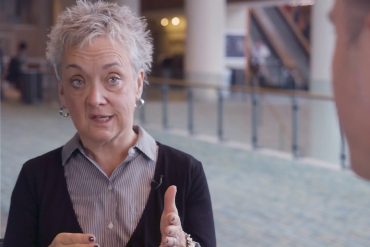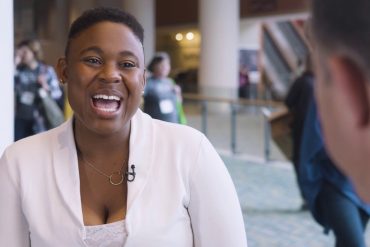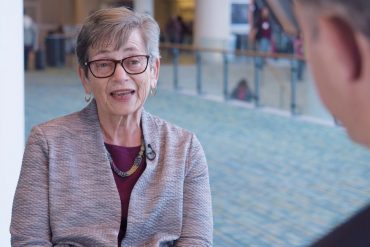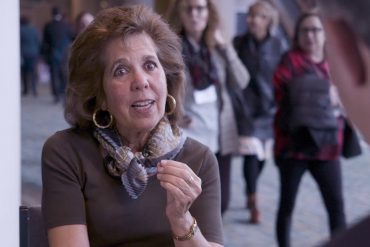We are all more than our most challenging moments. As Ellen Galinsky, Bezos Family Foundation Chief Science Officer and Founder/Executive Director of Mind in the Making, explains, a focus on “trauma informed care” in early learning is shifting to “asset informed care.” And that process starts with looking at children in terms of their strengths.
As early learning science continues to deliver new insights around how children learn, the imperative next step becomes putting those learnings into the hands of people who need it most: Educators and parents. Senior Manager Erin Ramsey explains how Mind in the Making does that all across America.
Why is training not always the best – or even sufficient – way to prepare people for the hard and important work of educating children? Executive Director Judy Jablon describes how Leading for Children helps communities develop new ways to create learning experiences wherever children are.
How do can the children’s individual identities evolve naturally and fully in the face of stereotypes that can often plague our communities and societies? As Julie Olsen Edwards, author ‘Anti-Bias Education for Young Children and Ourselves’ explains, some of that help can come from teachers – and how they think about their curriculum.
It’s the not-so-secret secret: Higher rates of poverty occur for U.S. children in rural communities rather than urban ones. Yet delivering the benefits and tools of brain science to these areas is difficult in terms of cost, location, infrastructure. As Senior Specialist Lindsey Lockman Dougherty, Save the Children – in partnership with the Vroom Initiative – is doing something about that.
As Manica F. Ramos, Senior Research Scientist at Child Trends notes, we often forget that parents are the first and primary teacher for their child – from the moment they’re born, through their school experiences, and until the end of the day. Which is why helping parents learn how to teach in every day moments is such an important piece of a child’s early learning experience.
How do you build leadership in early learning? According to Maurice Sykes, Executive Director of the Early Childhood Leadership Institute, it goes beyond the usual skills and benefits from an eye towards equity and social justice: “[making] sure that children, regardless of zip code or surname or gender, have access to high quality programs.”
As the National Association for the Education of Young Children, two strategic policy priorities NAEYC faces are ensuring access to “high quality, developmentally appropriate early childhood education” and, relatedly, working to ensure the practitioners gain proper recognition – and support – as professionals. NAEYC CEO Rhian Allvin explains how the group will do it.
Early childhood education is imperative and challenging under any circumstances. Families formed through adoption, families with LGBTQ members, and children who are gender fluid bring their own unique challenges – and opportunities. Robin K. Fox, Interim Dean of University of Wisconsin-Whitewater College of Education & Professional Studies, discusses what teachers, parents, and children need to know – and how they can apply that understanding every day.
What does it take to build 24-hour childcare? It starts with a promise. It continues with commitment. And to listen to Rosa Marie, President of Marvelous Minds Academy, there’s only one way it can end: With doors opening to serve families who need it.
If education is so central to American success, why – as a country – don’t we invest more in the ones doing the educating? Sue Russell is Executive Director of the
T.E.A.C.H. Early Childhood National Center, which, among other efforts, provides comprehensive scholarships to the incumbent early childhood workforce – a program that has delivered more than $540MM in grants to some 165,000 educators.
Language development is critical to young children’s development – indeed, the foundation for early literacy. So what are the straight-forwards ways teachers and parents can bring more words into children’s lives? Professor Susan B. Neuman explains.


